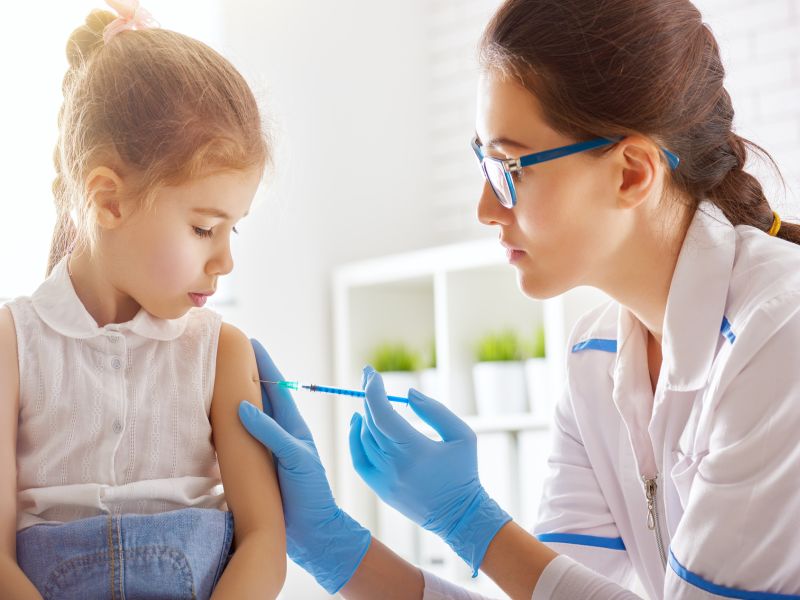WEDNESDAY, July 26, 2017 (HealthDay News) — Of all the items on your child’s back-to-school checklist, getting vaccinated is probably your kid’s least favorite. But those shots are essential for keeping children healthy, pediatricians say.
Vaccination requirements may vary somewhat from state to state. But all 50 states and Washington, D.C., require children to be vaccinated against diphtheria, tetanus and whooping cough (pertussis), polio, measles and rubella.
If your child hasn’t already been vaccinated according to the U.S. Centers for Disease Control and Prevention’s recommended schedule, it’s not too late, said Dr. David Kimberlin. He is vice chair of pediatrics and co-director of the University of Alabama at Birmingham’s division of pediatric infectious diseases.
“The best way to treat diseases is to prevent them in the first place, and the diseases on the vaccine schedule are all preventable for the vast majority of our population,” Kimberlin said in a University of Alabama at Birmingham (UAB) news release.
“These diseases that are preventable through vaccination — polio, measles, rubella, diphtheria and others — can cause major harm unless your body has been taught through a vaccine to resist the disease,” he explained.
Kimberlin, who’s also the American Academy of Pediatrics’ liaison to the CDC Advisory Committee on Immunization Practices, said if you haven’t vaccinated your children previously and want to do so now, talk with your pediatrician about getting back on schedule.
Dr. Stephen Russell, associate professor of internal medicine and pediatrics at UAB, agreed.
“If parents who have previously not vaccinated their children decide they want to get the vaccines and get their children caught up, it can be done, and it can be done in one visit,” he said.
Russell said that “many parents don’t know that the sooner a child is vaccinated, the more effective those vaccines will be. Pediatricians can quickly help families get back on the vaccine schedule in a safe and effective manner.”
The UAB doctors also urged parents of both boys and girls to begin human papillomavirus (HPV) vaccinations at age 11 to prevent cervical, penile, oropharyngeal and rectal cancers.
More information
The U.S. Centers for Disease Control and Prevention has more on vaccines and immunizations.
Copyright © 2026 HealthDay. All rights reserved.

